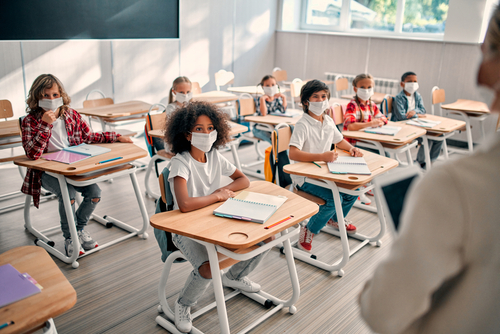Shaping the future with multilateralism
The culture and education sectors were thrown into disarray by the pandemic. But, with international collaboration deployed to support both, these demonstrate how multilateralism can enable the world to
come back stronger
COVID-19 caught the world off guard. The virus spread silently and escalated quickly, affecting all areas of our lives, all around the world. It was a stark reminder that global problems need global solutions, and that isolated actions cannot solve all-encompassing problems. The multilateral system was created precisely to address situations like these.
In recent years, multilateralism has come under attack. However, the pandemic is an opportunity to show that, by joining forces, we can rebuild the world we want – we can rethink the future. As the intellectual agency of the United Nations, UNESCO is uniquely placed to do just that, through its mandate in culture, education, science and information. To be successful, however, we need to focus on the long term, and we need to work hand in hand with our partners.
The G20 is helping us to achieve these goals. The G20 has created ministerial tracks for education and culture, with ministers meeting in Catania in June and Rome in July. By placing culture and education high on the international agenda, the G20 has acknowledged that sustainable development is about more than economic growth; it is about human development, too.
Bearing the brunt
This is especially true in the cultural field. Culture is an important and often underestimated economic sector, employing more young people than any other industry. It also plays an essential role in social cohesion, as it lies at the heart of our individual and collective identities. Yet the cultural sector has borne the brunt of the health crisis. Millions of cultural venues have closed their doors; creators have seen a significant drop in revenues. In 2020 alone, royalties were expected to decrease globally by up to 35%.
In response, UNESCO launched the ResiliArt debates, bringing together professionals, institutions and governments in over 110 countries to discuss issues affecting the cultural sector. These events, organised to address short-term issues, have taught us long-term lessons. They have taught us that we must improve the social protection of creators, given the inherent fragility of the cultural field. They have taught us that value must be distributed more fairly between creators and digital platforms, following the sector’s rapid digitalisation.
Like culture, education has been hit hard by COVID-19. At the peak of the crisis, schools and universities closed in more than 190 countries, affecting 1.6 billion learners – and not all of them equally. For example, roughly half of the students affected by school closures lacked internet access at home, meaning they were denied the fundamental right to education.
UNESCO took steps to address this issue in the short term, by launching the Global Education Coalition. With over 180 partners from the public and private sectors, it has supported distance learning initiatives in more than 110 countries, to ensure that learning never stops.
However, UNESCO did not wait for COVID-19 to explore emerging issues, which include new technologies. Before the pandemic, we began preparing a report on the Futures of Education to rethink teaching and learning for 2050 and beyond. Due to be published in November, it will call for education policies and practices that underpin a new social contract, to reforge the relationship between people, planet and technology.
A new course of action
As the examples of culture and education show, COVID-19 is both a test and an opportunity for multilateralism. International collaboration is the only course of action when fighting a disease that ignores national borders. But short-term struggles must not mask the long-term potential of the multilateral system. It alone can act over extended periods of time, all around the world. It alone can shape the future.
UNESCO has seen this recently, when developing recommendations on Open Science and the Ethics of Artificial Intelligence. Both of these standard-setting instruments are the first of their kind; both aim to help our member states address future challenges – the need to ensure that scientific progress and technological innovations benefit all, while respecting human rights.
What sets these texts apart is the inclusive way in which they were developed: the Recommendation on the Ethics of Artificial Intelligence was discussed during 100 hours of intergovernmental negotiations. No single government can achieve this result – it is only possible through international cooperation. Both of these instruments are set to be adopted at our 41st General Conference in November.
When G20 leaders meet at the Rome Summit in October, I call on them to commit to the long-term potential of the multilateral system, by developing post–COVID-19 recovery plans that build on the economic and social power of culture and education, science and information. Only by leveraging these global common goods can we build the world we want.












